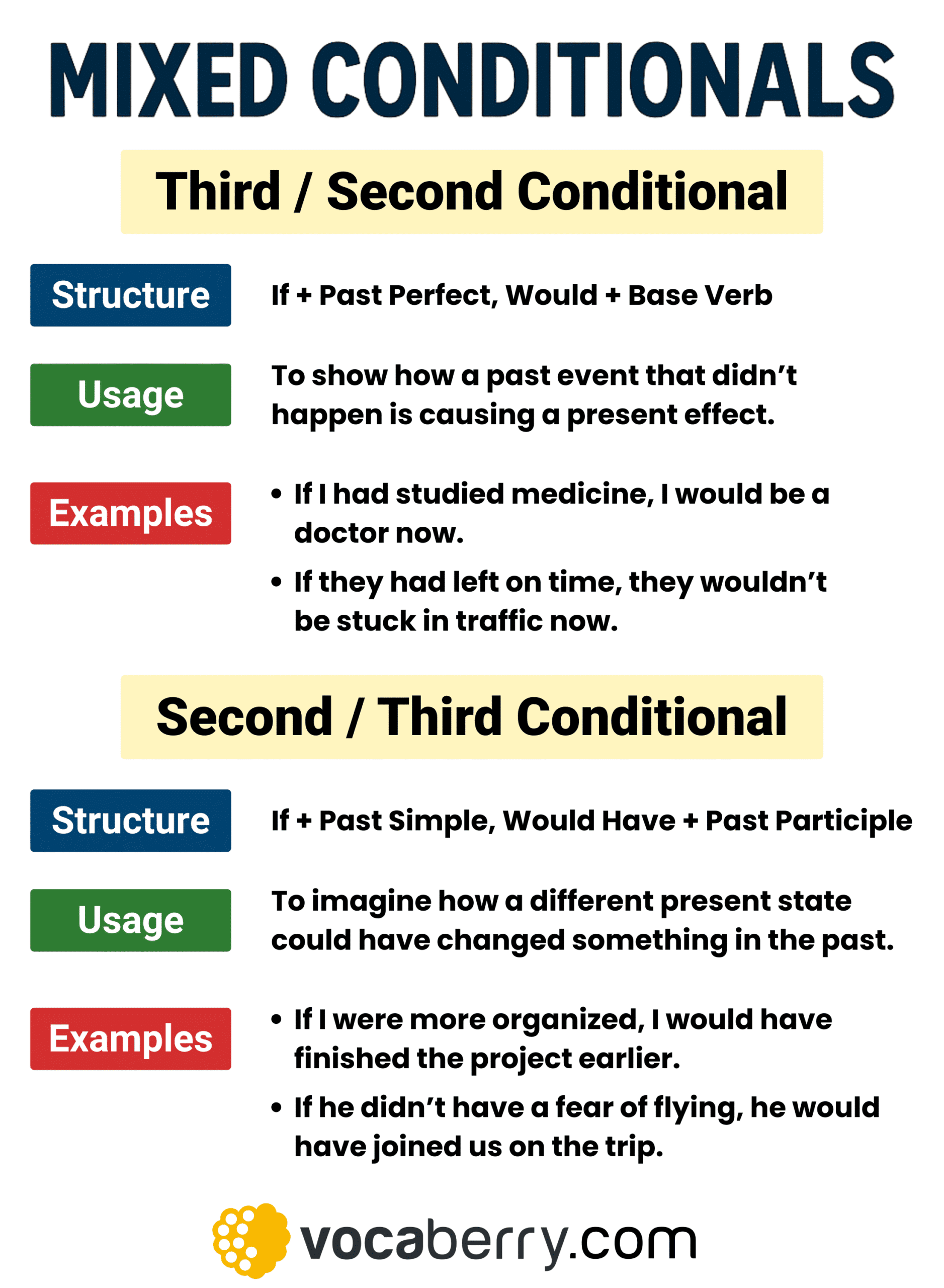
Mixed conditionals are used when the time in the if-clause and the result clause are different. They allow us to talk about unreal past situations and their present results, or unreal present conditions and their past results. These structures combine parts of the second and third conditionals.
In this article, you’ll learn what mixed conditionals are, when to use them, how to form them, and see clear examples that show how they work in everyday English.
What Are Mixed Conditionals?
Mixed conditionals combine two different time references in one sentence. They are called “mixed” because they take one part from the second conditional (unreal present or future) and one part from the third conditional (unreal past). There are two main types:
- Mixed Conditional Type 1 (Past → Present)
- Mixed Conditional Type 2 (Present → Past)
Types of Mixed Conditionals
There are two main types of mixed conditional sentences:
Mixed Conditional Type 1
This type of mixed conditional is used when you want to talk about a situation in the past that didn’t happen and explain how it would affect the present. It describes an unreal past condition with a present result. This structure is useful when reflecting on past actions or decisions and imagining how things would be different now.
Structure:
If + past perfect, would + base verb
Examples:
- If I had gone to bed earlier, I wouldn’t be so tired now.
- If she had accepted the offer, she would be working here today.
- If they had moved to the city, they wouldn’t need a car now.
Mixed Conditional Type 2
This mixed conditional type is used to talk about a situation that is not true in the present, and imagine how it would have affected the past. It combines an unreal present condition with a past result. This form is helpful when expressing regret or reflecting on how different present circumstances could have led to a different outcome in the past.
Structure:
If + past simple, would have + past participle
Examples:
- If I were more organized, I would have finished the project on time.
- If she spoke French, she would have understood the conversation.
- If they had a car, they would have visited us last weekend.
Mixed Conditional Examples
Mixed Conditional Type 1 (Past → Present)
- If I had studied engineering, I would have a better job now.
- If she had moved to London, she would be closer to her family today.
- If they had arrived earlier, they would be in the meeting now.
- If we had bought that house, we would be living near the beach.
- If you had taken your medicine, you wouldn’t be sick now.
- If he had accepted the offer, he would be working here today.
- If I had gone to the interview, I might have a new job now.
- If she had practiced more, she would be confident today.
- If we had booked the tickets last week, we would be on the flight now.
- If they had taken the correct route, they wouldn’t be lost now.
Mixed Conditional Type 2 (Present → Past)
- If I were more confident, I would have spoken at the meeting.
- If he knew Spanish, he would have understood the instructions.
- If we had a car, we would have driven to the wedding.
- If she were taller, she would have joined the team last year.
- If they liked horror movies, they would have come with us.
- If I weren’t afraid of heights, I would have gone skydiving.
- If he had more money now, he would have paid the bill yesterday.
- If we trusted him, we would have accepted his deal.
- If I were a better cook, I would have made dinner for everyone.
- If they lived closer, we would have visited them last weekend.






